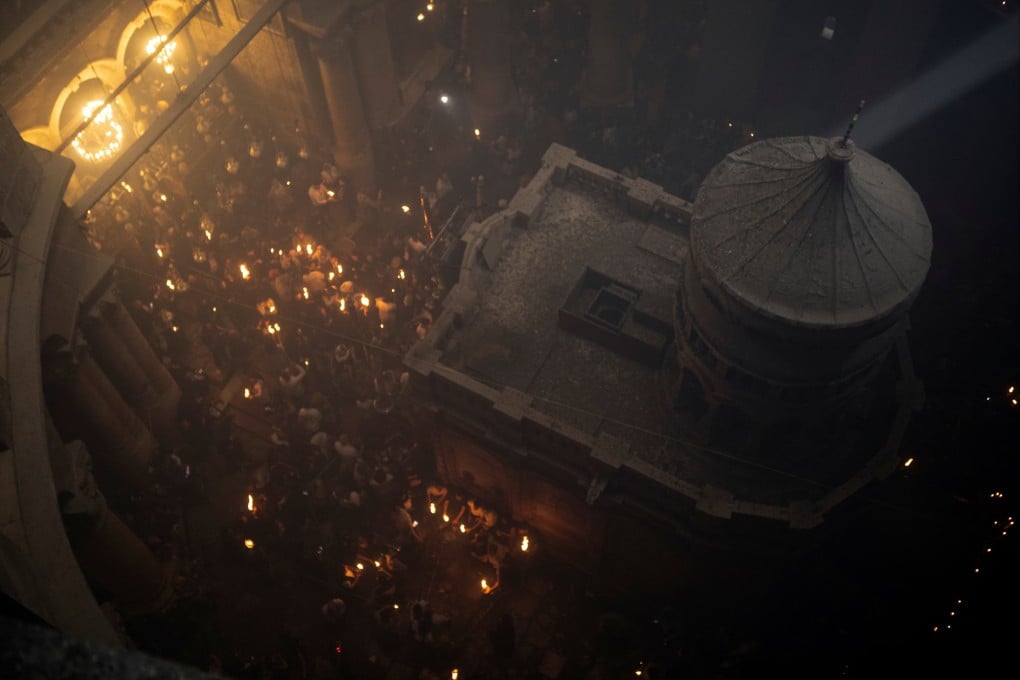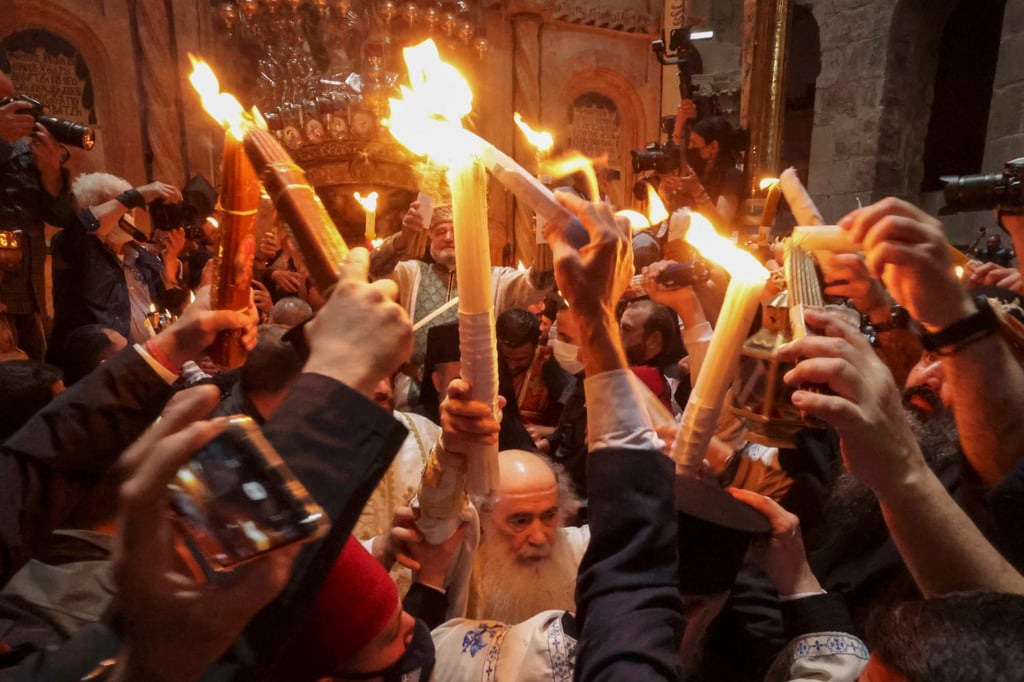Jerusalem church glows in ‘Holy Fire’ ritual attended by thousands for Orthodox Easter
- Joyous, shouting faithful crowded together unmasked, holding candles bound together inside the darkened Church of the Holy Sepulchre
- The church Church of the Holy Sepulchre is built on the site where, according to Christian tradition, Jesus was crucified, buried and resurrected

Thousands on Saturday celebrated the traditional “Holy Fire” ceremony of blazing candles at Christianity’s holiest site in Jerusalem, Israel to mark the eve of Orthodox Easter.
Tens of thousands of faithful have attended the ceremony in earlier years but coronavirus constraints severely limited attendance on the past two occasions.
This year, joyous, shouting faithful crowded together unmasked, holding aloft wads of thin candles bound together to produce thick orange flames that danced inside the darkened Church of the Holy Sepulchre.

The church is built on the site where according to Christian tradition Jesus was crucified, buried and resurrected.
Israel’s Foreign Ministry gave a crowd estimate of thousands, who celebrated in a tense Jerusalem after days of clashes between Palestinians and Israeli forces at the nearby Al-Aqsa mosque compound.
The Church of the Holy Sepulchre and the rest of the Old City lies in east Jerusalem, occupied and later annexed by Israel following the Six-Day War of 1967.
Worshippers had waited from the morning hours with candles in hand. They cheered with excitement and bells rang in the early afternoon when Greek Orthodox Patriarch Theophilos III exited the Edicule, traditionally believed to be Christ’s burial place, holding burning candles.